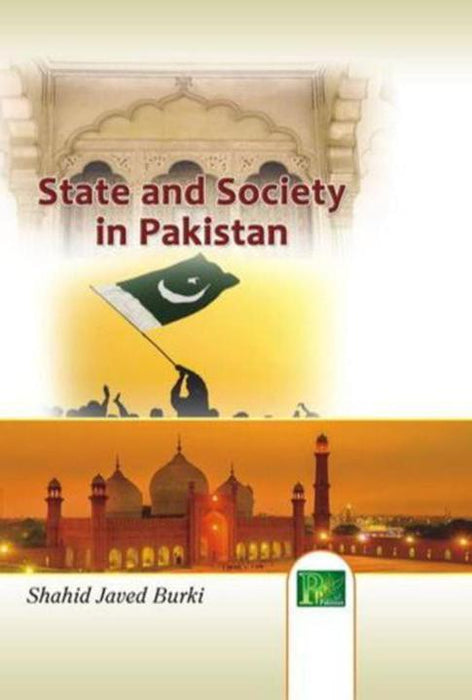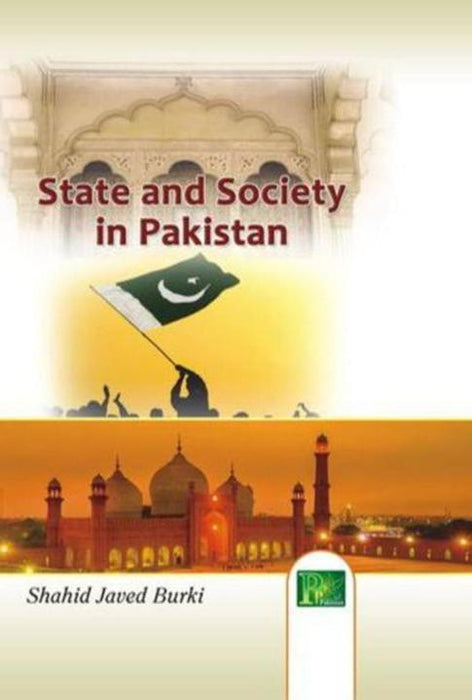State And Society In Pakistan by Shahid Javed Bukhari
- Publisher: PEACE PUBLICATIONS
- Availability: In Stock
- SKU: 40461 Rg 0038
- Number of Pages: 244
Rs.960.00
Rs.1,195.00
Tags: best books , Best Price , best prices , best shop , BNB , bookshop , bookshop online , bookshopPakistan , buy online books , Civil Society , Cultural Identity , Democracy in Pakistan , Development Studies , Education in Pakistan , Globalization and Pakistan , good books , good booksonline , Governance in Pakistan , Human Rights in Pakistan , Nationalism in Pakistan , online books store , Online Bookshop , Online Bookshop Pakistan , online shopping , Online Shopping Pakistan , OnlineShoppingPakistan , Pakistan History , Pakistan Studies , Pakistan's Politics , PakistanBookshop , Pakistani Society , PakistanOnlineShopping , Policy Analysis , Political Challenges , Political Culture , Political Dynamics , Political Science , price cut , price-friendly Comprehensive , Public Administration , ReasonablePrice , reduced price , Rural and Urban Issues , Shahid Javed Bukhari , Shopping , ShopSmartPakistan , Society and Politics , Socioeconomic Issues , State and Society in Pakistan , State Institutions , State-Society Relations , Women in Pakistan
State and Society in Pakistan by Shahid Javed Bukhari offers a comprehensive analysis of the intricate relationship between the state and society in Pakistan. The author examines historical, political, and socio-economic factors that have shaped the country's governance and social dynamics since its inception in 1947. The book delves into the role of various institutions, including the military, judiciary, and civil society, and their impact on the democratic processes and citizen engagement. Through a critical lens, Bukhari explores how policies and political decisions have influenced societal structures, cultural identities, and economic development, providing a nuanced understanding of the complexities faced by Pakistan today.
Key Points:
-
Historical Context: Offers a thorough examination of Pakistan’s history, highlighting the evolution of state structures and societal norms from independence to the present day.
-
Political Dynamics: Analyzes the political landscape of Pakistan, focusing on the interactions between civilian governments and military regimes, and their implications for democracy.
-
Institutional Roles: Discusses the functions and influence of key institutions, including the military, judiciary, and media, on governance and public policy.
-
Socio-Economic Factors: Explores how economic policies and conditions affect social structures, including issues related to poverty, education, and healthcare.
-
Cultural Identity: Investigates the impact of cultural and ethnic identities on social cohesion and political participation within the diverse population of Pakistan.
Conclusion:
Shahid Javed Bukhari’s State and Society in Pakistan serves as an essential resource for students, researchers, and policymakers interested in understanding the complex interplay between governance and social dynamics in Pakistan. By integrating historical insights with contemporary analysis, the book provides a rich framework for examining the challenges and opportunities facing the country, making it a valuable addition to the discourse on state-society relations in South Asia.
════ ⋆★⋆ ═══
Writer ✤ Shahid Javed Bukhari
Publishers ✤ PEACE PUBLICATIONS

























